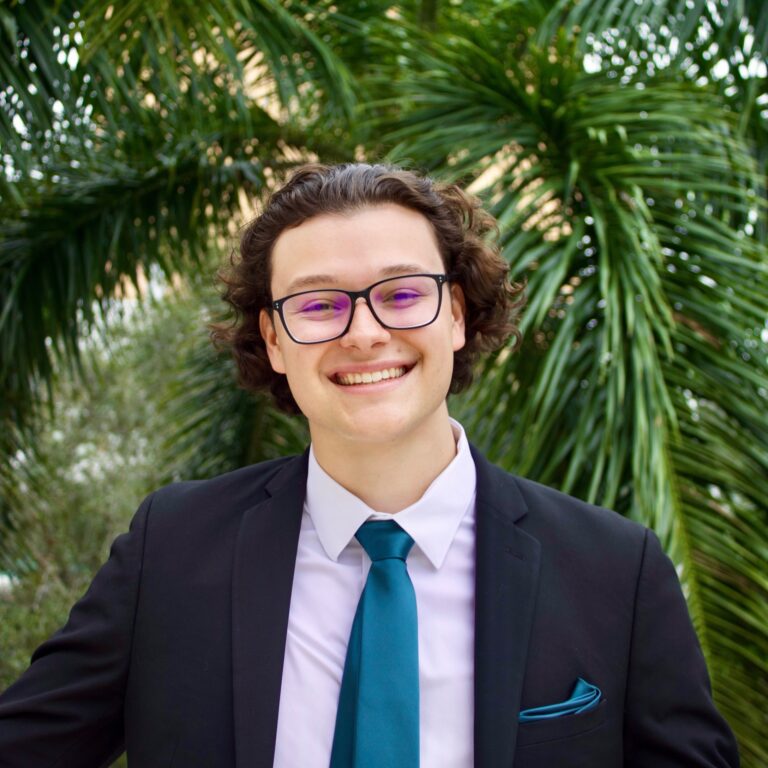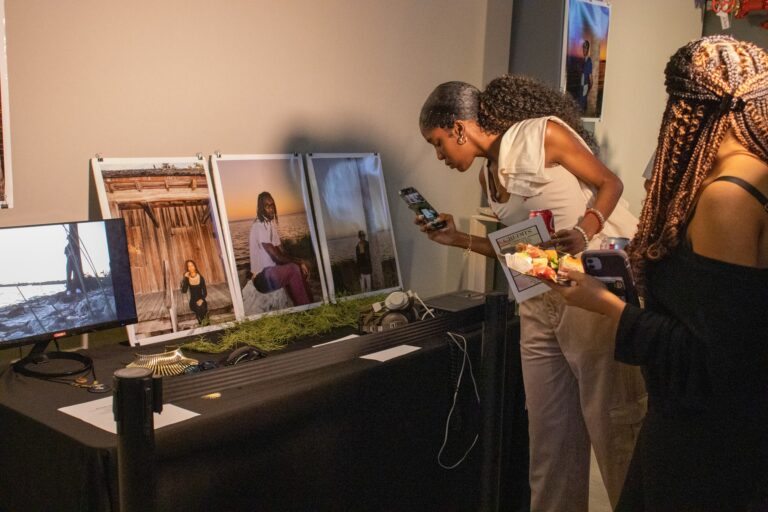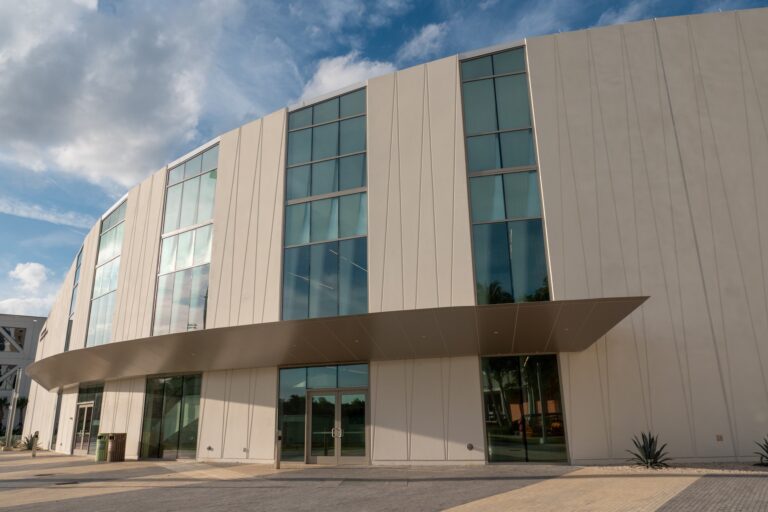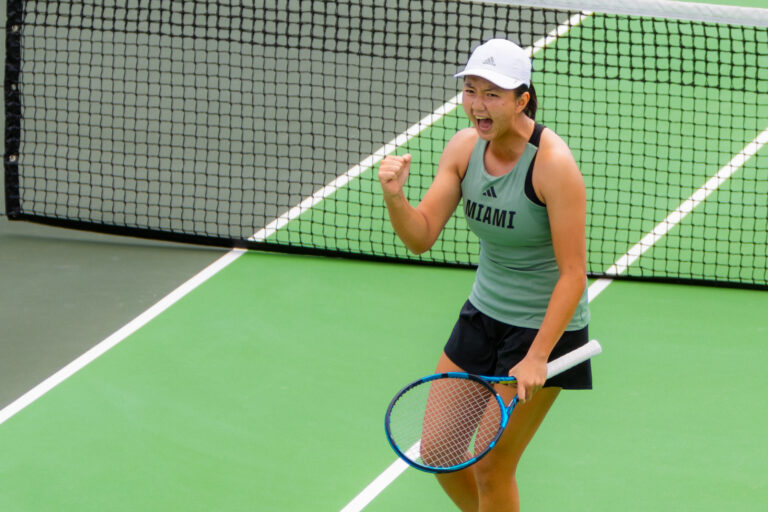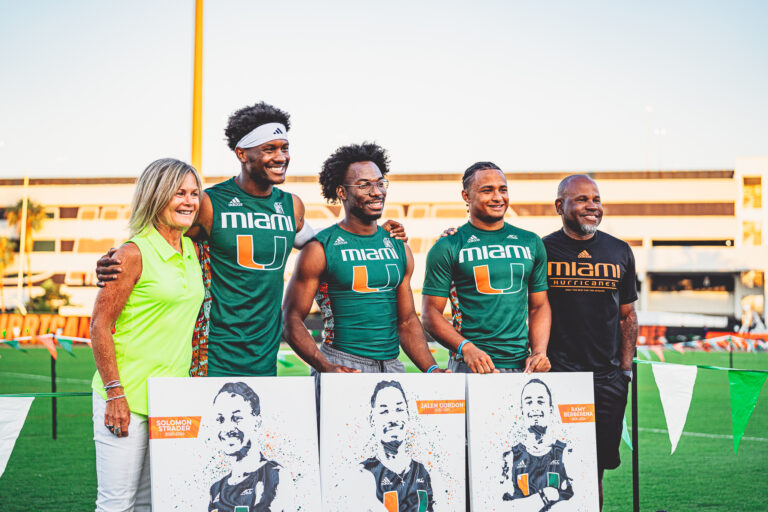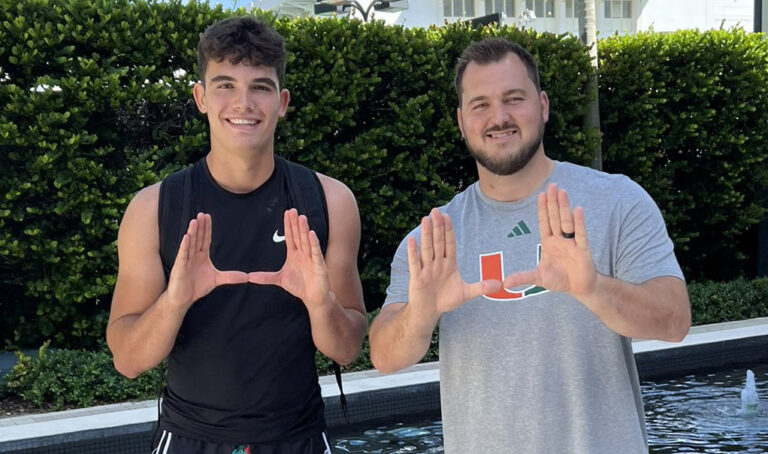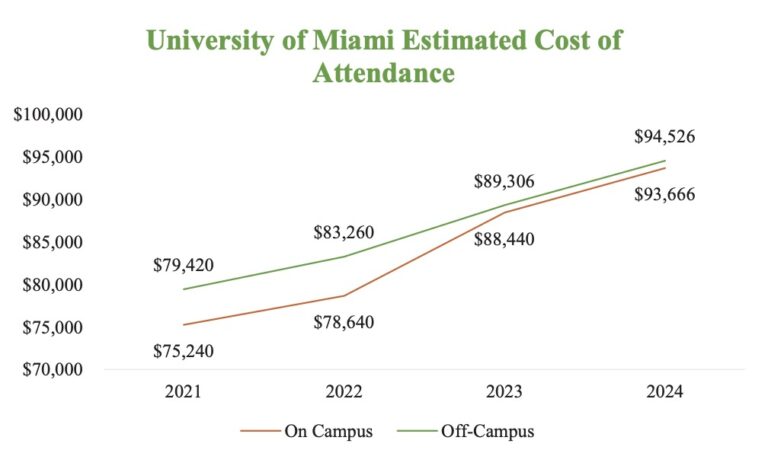Editor’s Note:
The Miami Hurricane has been an important part of the University of Miami community since the beginning, reporting on the daily events and lives of students for almost a century. This work builds a critical bridge between students and administration and other members of the UM community, while keeping a historical record of the UM experience.
But this work has become increasingly difficult.
Over the course of the past academic year, The Hurricane has been challenged and silenced by various areas of UM, from administration to student organizations and even UMPD. Students have also been hesitant to comment and frequently request to be anonymous in the least contentious of stories.
If we are denied access to information, we cannot do our job as journalists, which has led to accusations of bias from those who refuse to comment.
The difficulty of getting simple statements or even an email back from the various sources we reach out to is not reflected in the articles readers see, but plays one of the most important roles in writing those pieces.
The Hurricane will continuously strive to report as often and as accurately as possible, but without a consistently open line of communication with the administration and a sense of understanding from the student body, we’re prevented from reporting to the best of our ability. This leaves valuable questions and concerns from students unaddressed and underplayed.
To shed light on this, The Hurricane has detailed some of the most significant incidents that have challenged our reporting this year. It is our intent to display the magnitude of the problem on campus with the hope that seeing it will make members of the UM community more open to working with us rather than against us.
Greek Life: The Sigma Alpha Epsilon Investigation
Sigma Alpha Epsilon was placed under investigation at the end of February for a video that showed what The Hurricane and students interpreted as alleged hazing: the spitting and vomiting of milk onto a member of SAE who was stuffed into a trashcan.
During the initial reporting on the incident, The Hurricane learned that the video had been turned in directly to the University days earlier. At the time, this information was not confirmed on the record and could not be published.
The lack of communication from the University fostered an environment where some students felt The Hurricane was to blame for the investigation, instead of the fraternity itself. Others expressed that student newspapers should keep quiet on these matters altogether.
In failing to share details like this with students, our reporters were viewed as whistleblowers or tattletales, rather than journalists keeping up with school news. This resulted in extensive online harassment and threats to our reporters by students upset over the investigation.
Student newspapers have a duty to report any possible incidents of hazing on their campus, a prevalent and persistent problem at universities across the nation made even more salient on our campus as Florida’s current anti-hazing law was signed after Chad Meredith, a UM student, drowned and died as a result of hazing in 2001. Early reporting on hazing could reveal poor fraternity practices and prevent senseless loss of life that has been associated with hazing.
As the SAE investigation progressed, The Hurricane sent several emails to check on the status of the fraternity with the national chapter and UM administration. The Hurricane emailed eight questions and received one 100 word statement that SAE was not in violation of the hazing policy but was facing punishment for conduct violations.
The Hurricane inquired if follow up questions would be entertained and received no response.
UM’s lack of clarity on why this incident specifically was not ruled as hazing has created a confusing and unclear precedent over what might be considered hazing in the future. This also prevented The Hurricane from being detailed in its reporting of the decision, a situation many students were following.
University of Miami Police Department
In Feb. 2023, two student pedestrians were critically injured in a car accident at University Village. The Hurricane contacted UMPD and the Coral Gables Police Department to request a police report to learn the details of the accident.
We were constantly transferred back and forth between the departments, eventually getting the number of the Public Information Officer for CGPD.
When we called, the PIO said she was on vacation and gave no alternative contact. When directed back to UMPD, we were finally told to submit a public records request to their portal. Someone on the phone said there would be no guaranteed update for up to 60 days. TMH was never given the police report.
In another case, The Hurricane consulted UMPD in September for information regarding the growing deaths and injuries among the feral cat population at UM.
According to UPurr, it became abundantly clear throughout their investigation that the injuries and deaths among the animals were not accidents.
The student organization requested security camera footage for every cat death over the span of a year. Each time, UMPD lingered in responding until the 28-day requesting period lapsed, after which camera footage automatically erases.
In response, the Hurricane attempted to contact UMPD’s Chief of Police for answers. He only provided one generic statement that left us without a clear explanation or update.
It should not require excessive media requests for UMPD to respond when animals are being killed on campus. When robberies are suspected on campus students get an alert, and the same should have occurred when cats were found dead in student spaces.
It is our job to report on matters important to students, but it is UMPD’s job to communicate. Students have every right to know the events on campus that could threaten their safety.
DEI concerns
Gov. Ron DeSantis signed Senate Bill 266 banning public universities from spending federal or state money on DEI initiatives, effective Jan. 1, 2024. Then, the Florida Board of Governors issued the Prohibited Expenditures regulation, further limiting the use of state funding for DEI.
As Florida public universities were forced to slash all positions associated with DEI, UM students and The Hurricane wondered what this meant for our private college.
At UM, DEI initiatives help curate a diverse staff, faculty, students and suppliers in terms of race, religion and perspective. The Multicultural Student Affairs department at UM houses more than 30 groups and there are more than 290 cultural student organizations within COSO.
The Hurricane attempted to contact staff, faculty members and university communications for clarity on UM’s future policies and DEI funding but did not receive any responses.
It remains unclear if Miami’s inherent diversity will push UM to maintain DEI funding, or if funding will decrease, reflecting the new standards for Florida’s public universities.
Many students found a place on campus because of the University’s inclusion efforts and deserve reassurance or at the least a response during this education policy overhaul.
Student media policy:
The Hurricane attempted to cover Student Supporting Israel’s “Conversation about Israel” with Alan Dershowitz, an event advertised as open to all students, in early February.
The Hurricane was initially told by SSI it would not be allowed to cover the event unless a specific writer was assigned and the organization could approve the article before publication. Copy pre-approval is a violation of journalistic ethics.
Members of The Hurricane spoke with the presidents of SSI, its advisor, UM Communications and administrators in an attempt to gain access to the event. The Student Handbook and media policies were also consulted to determine the student-journalists’ rights.
The Hurricane determined the event was required to be open to all students because it was at least partially funded by SAFAC. UM Communications was also able to grant The Hurricane media access.
When The Hurricane reporters arrived at the event, they were denied entry because they were allegedly not on the list of 150 reserved seats. While standing in the waitlist line, a reporter from UMTV was allowed in, even though they had registered after TMH and not consulted with administration or UM Communications.
Although there remains no clear policy, it is understood that student journalists are allowed access to cover public events on campus, even if there are no reserved seats available.
Allowing SSI to pick and choose what student media publications could gain access to the event sets the standard that students can pick and choose when the media can report on issues.
This effectively works to silence TMH when it is simply trying to cover an event, incident or concern relevant to the community.
FACA: It is a privilege to remain silent
The University now has the opportunity to communicate effectively on an issue that will either cost students thousands of dollars or cost the University some of their most intelligent and committed students.
Every student that has committed to the University of Miami has done so with the understanding that they could pursue multiple majors. It was emphasized on the University’s website and reiterated in prospective student info sessions as a selling point for the school. At least 30% of students with more than one major or minor receive federal or state aid.
All of these students are now at risk of losing the aid that allows them to be students at UM following the University’s change to the financial aid policies known as the Financial Aid Course Audit (FACA). But none of them understand exactly what FACA entails or how it will directly impact them because the University has neglected to communicate this information with students.
In past cases of controversy, the University could remain silent to try and suppress the dialogue. For the SAE and dead cats stories, concerns only directly affected a select group of students, and UM could count on everyone else forgetting about it.
FACA is not the same. It affects every student enrolled at or applying to UM. By remaining silent UM is only procrastinating delivering the difficult message: federal and state aid won’t cover additional majors or minors.
It is time they say something about it.
For weeks, The Hurricane has worked diligently to ascertain the details of this change and has been met with roadblocks. While trying to explain the policy for the school, we repeatedly requested interviews from Assistant Vice President of Financial Assistance Daniel Barkowitz and other top officials to clarify it. We were ignored or redirected, repeatedly.
We still can’t confirm if UM merit scholarships are included in this policy because school officials refuse to reply to us, aside from one statement reiterating the online policy.
Students have also been met with next to no information.
As early as fall 2023, University officials reportedly learned that they would need to change University policies to prohibit students from using federal or state aid to pursue multiple majors, affecting an estimated 10% of students.
The University waited until the beginning of March, a few weeks before class selection for the fall 2024 semester, to share this information even though they knew it was coming. Even then, it was only sent to those in violation of the policy, not the student body.
The email “warned” students about not complying with a presumably well-known University policy, despite the policy not existing online until March 4. Itl dangled the student’s financial aid over their head, threatening them with revoking it if the student failed to comply with the University’s policy.
However, students don’t know what the University policy is. Advisors have told students that their merit scholarships are included in the policy, aren’t included in the policy or won’t be included in the policy for another semester. Some advisors do not even know about the FACA policy.
The situation has grown so severe that the Student Government Senate has put a bill on the floor requesting the University send an email to all students laying out the details of the policy.
Students have also been reaching out to reporters at The Hurricane, hoping that we can provide them with guidance for what to do about their situation. These students are anxious that they will be forced to graduate early or forced to pay tens of thousands of dollars because they’re not complying with this mysterious policy.
The Hurricane is happy to provide the information we can, but we should not be filling in for students’ advisors. We are the newspaper, not ’Canes Central. Students shouldn’t be relying on our reporting alone to make life changing decisions about their academic futures.
The University has an undeniable responsibility to notify students of its policy change, with enough advance that they can adjust their schedules and must email students and families of the exact details of this change.
Editorials represent the majority view of The Miami Hurricane editorial board. The views expressed in this piece do not necessarily reflect the views of the entire staff or entire editorial board. We encourage questions, concerns and responses to be sent to letters@themiamihurricane.com.






